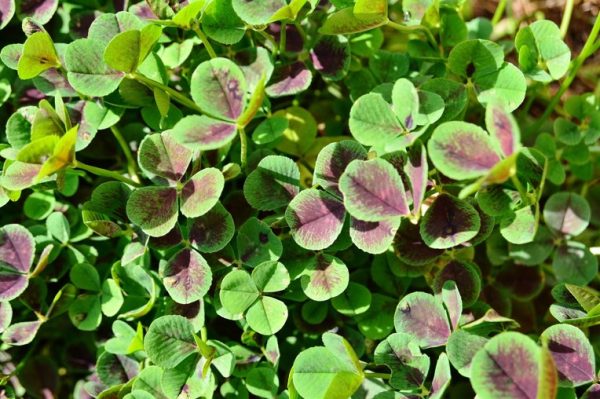
India Measures To Promote Biofertilizers
Biofertilizers are natural substances containing microorganisms that enhance soil fertility and promote plant growth. These microorganisms form symbiotic relationships with plants, aiding in nutrient uptake and improving soil health.
Types of biofertilizers:
- Nitrogen-fixing biofertilizers: Contain bacteria like Rhizobium (for legumes) or Azotobacter (for non-legumes). Convert atmospheric nitrogen into forms plants can absorb.
- Phosphate-solubilizing biofertilizers: Include fungi like Aspergillus and bacteria like Bacillus. Break down insoluble phosphates in soil into plant-usable forms.
- Potassium-mobilizing biofertilizers: Bacteria like Frateuria aurantia help make potassium available to plants.
- Mycorrhizal biofertilizers: Fungi like Glomus species form associations with plant roots, improving water and nutrient absorption, particularly phosphorus.
- Organic matter Decomposers: Microbes like Trichoderma decompose organic waste, releasing nutrients.
Benefits of biofertilizers:
- Eco-friendly: Reduce the dependency on chemical fertilizers, lowering environmental pollution.
- Soil health: Improve soil structure and fertility by enhancing microbial activity.
- Plant health: Increase nutrient availability and stimulate plant growth.
- Cost-effective: Lower input costs for farmers over time.
Govt of India promoting use of Biofertilizers in agriculture:
Government of India encourages the use of bio-fertilizers which are economical and eco-friendly source of nutrients and is considered an important component of organic farming and Integrated Nutrient Management.
Biofertilizers are promoted under Paramparagat Krishi Vikash Yojana (PKVY) and Mission Organic Value Chain Development for Northeastern Region (MOVCDNER) schemes. Under PKVY scheme, farmers are provided financial assistance of Rs 15000/ ha for 3 years through Direct Benefit Transfer (DBT) for on-farm and off-farm organic inputs including bio-fertilizer. Under MOVCDNER, financial assistance @ Rs 32500/ ha for 3 years is provided to farmers for off farm /on –farm organic inputs including bio-fertilizer.
National Center of Organic and Natural Farming (NCONF) and its Regional Center of Organic and Natural Farming located at Ghaziabad, Nagpur, Bengaluru, Imphal and Bhubaneswar are organizing various trainings and awareness on organic farming and production and use of organic and bio-fertilizers.
Besides training and awareness, for ensuring quality bio-fertilizers have been notified under Fertilizer Control Order (1985) and their quality standards have been specified which are required to be adhered mandatorily by the manufacturers.
Under PKVY and MOVCDNER Rs. 693.30 Cr. and Rs. 236.78 Cr. respectively have been put in farmers accounts via DBT in last five years, for inputs including biofertilizers.
Indian Council of Agricultural Research (ICAR) has developed efficient strains of biofertilizers specific to different crops and soil types to reduce the use of chemical fertilizers in agricultural production. ICAR recommends integrated use of fertilizers and manures. Biofertilizers, both liquid and powdered form have been developed and promoted under All India Network Project on Soil Biodiversity. Biofertilizers for Phosphorus solubilization, Nitrogen fixation, Potassium and Zinc solubilization suitable for different crops across the country are developed and many of them are commercialized. The ICAR also imparts training on use of bio-fertilizers, organizes front-line demonstrations, awareness programs etc. to educate farmers on all these aspects.
To encourage farmers to use the bio-fertilizers, Government has taken various initiatives such as:
The integrated use of bio-fertilizer, organic fertilizer and organic manure has been made an integral part of package of practices developed by ICAR and State Agriculture Universities.
ICAR has developed liquid bio-fertilizer technology with higher shelf –life and developed improved strains of bio-fertilizers specific to different crops and soil types.
The government is implementing PKVY and MOVCDNER schemes in the country. The financial assistance of Rs. 15000/ ha for 3 years is provided in both the schemes through DBT to ensure that farmers buy organic inputs including bio-fertilizer.
Read more here: https://pib.gov.in/PressReleasePage.aspx?PRID=2080192
What are some limitations of biofertilizers? (Healthy Life)
- Sensitive to storage conditions (temperature, humidity).
- May not perform well in extreme weather or highly degraded soils.
- Require specific conditions for microbial activity to be effective.
Image credit: Clover plant that harbors nitrogen bacteria :Image by Whisker Flowers from Pixabay (Free to use under Pixabay content license)
Author: HealthyLife | Posted on: December 10, 2024
« Ayurveda Innovations for Global Health – Ayurveda Day 2024 India’s Drone Didi To Empower Women In Rural Areas »






















Write a comment